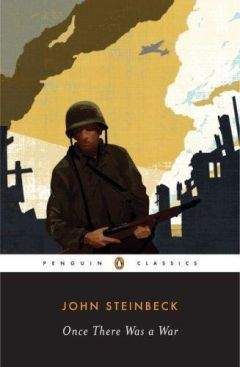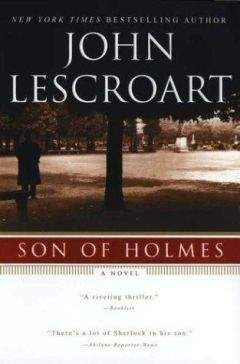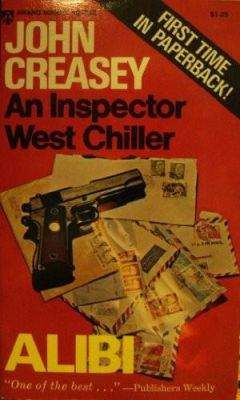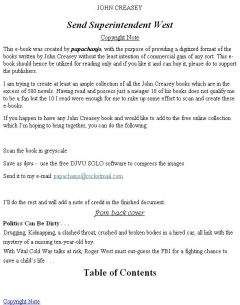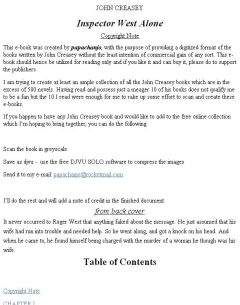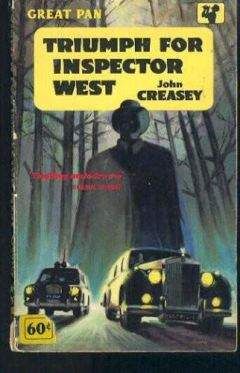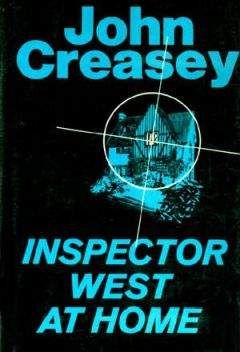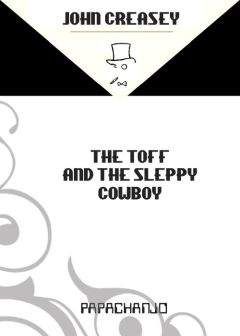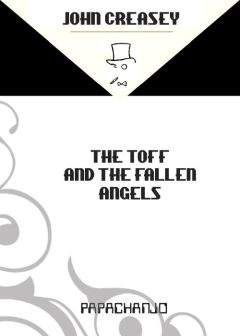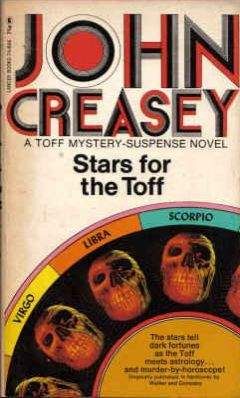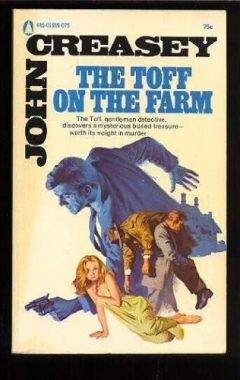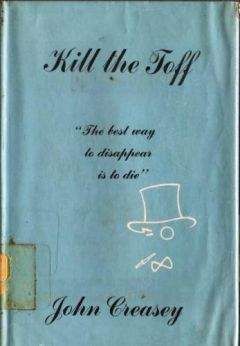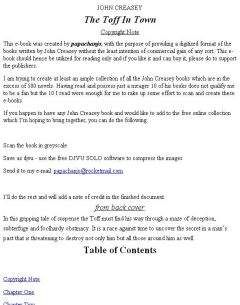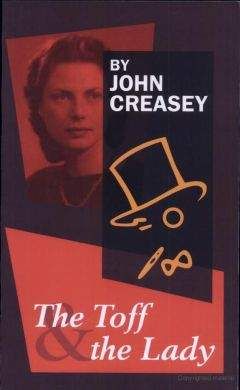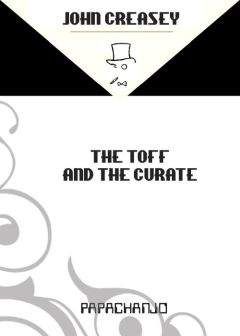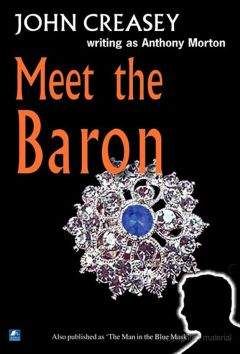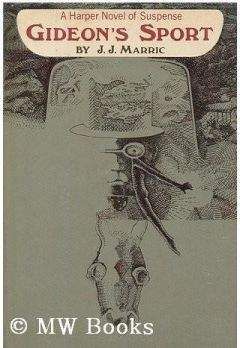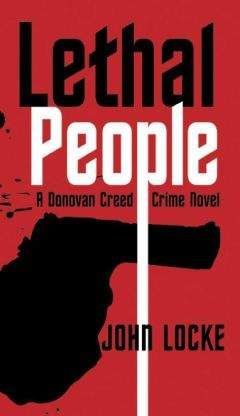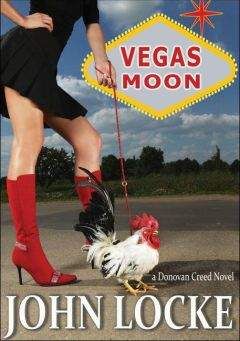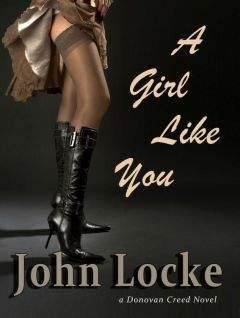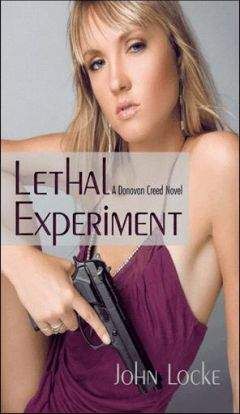John Creasey - The Toff And The Stolen Tresses
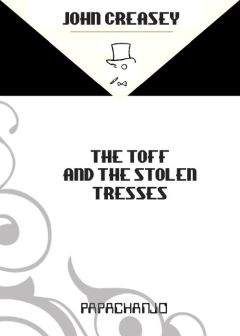
Скачивание начинается... Если скачивание не началось автоматически, пожалуйста нажмите на эту ссылку.
Жалоба
Напишите нам, и мы в срочном порядке примем меры.
Описание книги "The Toff And The Stolen Tresses"
Описание и краткое содержание "The Toff And The Stolen Tresses" читать бесплатно онлайн.
“Unofficially,” said Grice, “you’re right.”
“Sure of him?”
“Them.”
“Who are they?”
“It will interest you to know that we checked up on Tiny Wallis and Mick Clay, but their alibis were so perfect that no one in his right mind would believe it. The court, judge and jury would have to accept it as evidence, though. That hint broad enough for you?”
“So gentle,” mused Rollison. “Any idea why Jones was singled out?”
“No, and he swears he doesn’t know. He has a good reputation, and there’s no reason to think he’s lying.”
“Hm. The other six cases?”
“We’ve checked them all closely but haven’t found any connection, except that they’re indirectly associated with the firm of Jepsons,” said Grice, “although I’m pretty sure there is another link. Every victim says he’s no idea why he was attacked. If they’re lying, we haven’t been able to prove it.” He put his hand on a pile of manilla folders on the desk. “Here is a full account of every one, there’s no reason why you shouldn’t look at them. You could get the information from any newspaper office if you put your mind to it.”
“Thanks for saving me the trouble,” murmured Rollison. “May I . . . ?”
He studied the cases for nearly an hour, and when he left Grice’s office, did not go straight to Gresham Terrace. At the wheel of a demure grey and cream Rolls-Bentley, at that juncture his favourite motor car, he drove along the Embankment, the narrow thronged streets of the City, and through the noisy, bustling brashness of the East End. He attracted more and more attention the poorer the neighbourhood, and was making people gape by the time he reached the Blue Dog, in the Mile End Road. It was nearly one o’clock. When he went into the saloon bar of the pub, leaving the magnificent motor car outside, a throng of boys and youths promptly surrounded it, and a policeman kept a protective eye on it from a corner.
Behind the bar was an enormous man wearing pincenez, serving pints of beer in pewter tankards and half pints in glasses, while a youth and a little man with a twisted nose served drinks at the other end; and with the drinks, pork pies, cheese rolls and sandwiches. Everything was normal and everyone seemed to be talking at once when the door opened to admit Rollison. From the moment he entered, the silence was so complete that the big man, Bill Ebbutt, looked up to see what it was all about. He was near-sighted, and peered intently before recognising Rollison. Then he gave an expansive grin, and rumbled:
“Always a pleasure to see you, Mr. Ar! Come on private business or a snifter?” He would drop his work behind the bar and give all his time to Rollison, if it were necessary.
“Later, Bill,” said Rollison, reaching the bar; and they shook hands. “I happened to be passing, and felt like some of your pork pies.”
“Help yourself,” said Ebbutt. “What are you going to wash ‘em down with?”
“Still keep that 4 X?”
“Don’t be daft,” said Ebbutt, “arf me business is with 4 X.” He took down a tankard, pulled a handle, and placed a foaming head of the beer in front of Rollison. Then he turned to a small man who had been waiting patiently for several minutes. “Your turn now, Charlie, and give Mr. Ar elbow room, there’s a good little boy.”
He served and wheezed and sweated, the saloon bar became more crowded and the smell of beer became much more pronounced. Then he said in a whisper which only Rollison could hear:
“Anyfink you want?”
“Bill,” said Rollison, in a loud, clear voice, “I am interested in a gentleman named Tiny Wallis and another named Mick Clay.”
For the second time in the past twenty minutes a hush fell upon all the people present, and into the hush a worried Bill Ebbutt said:
“You be careful, Mr. Ar, that Wallis is a killer, and Clay ain’t far behind.”
“Oh, they’re just a couple of blowhards,” said Rollison casually, and bit into a pie from which the jelly oozed enticingly. “Liz still make these with her own fair hands, Bill?”
“Never mind the pies,” Ebbutt said urgently, “Don’t you go and take chances with that pair, and whatever you do, don’t under-rate them, Mr. Ar. I’m see-rious.” He looked not only serious but solemn, and lowered his voice for greater effect. “You watch your step and don’t go an’ forget it.”
Rollison looked at him straightly, and when no one else could possibly see, gave the plainest of winks.
“. . . and from what the police have told me, I can’t understand why you let them worry you,” he went on, quite regardless. “Wallis is the big shot and Clay’s his yes-man, isn’t that the set-up? Can you tell me where to find the pair?”
“No, Mr. Ar, I can’t, and that’s flat.”
“Can but won’t,” mused Rollison, and finished the pie and quaffed his beer, took another pie and completely changed the subject. “Why don’t you bring Liz over for an hour or so this weekend, Bill? It’s a good time. Jolly will be away and I’m on my own. Don’t know of a really good daily, do you?”
Ebbutt said huskily: “No, Mr. Ar, not one who’d come as far as your place every day. I’ll ask Liz, and if she can come it’ll be a pleasure. Friday’s the best day for me.”
“Day after tomorrow,” said Rollison blandly, and looked about him, as if he was completely at peace with the world and thoroughly enjoying life. He leaned forward so that his ear was close to Ebbutt, and he heard the big man whisper:
“Now you’ve done it, Mr. Ar, nothing will keep ‘em away. Would you like a couple of my chaps?”
“No, Bill,” Rollison said. “If I get any visitors, I’d like to welcome them myself.” He beamed and winked again, looked longingly at another pie, but slowly shook his head. Then with great precision he spoke so that only Ebbutt could hear. “You and your boys keep out of it for the time being, Bill. I’ll telephone if I want any help.”
“I dunno that I like it,” Ebbutt grumbled, “but I suppose you know what you’re doing.
Another “arf o’ mild, Charlie? Okay. “Am sandwich, yessir.” He toiled and drew the beer and watched over his customers, knowing which were aching to carry the news of the Toffs braggadocio to Tiny Wallis and Micky Clay.
It would not be long before the couple heard of it.
“Going straight back after this, Mr. Ar?” asked Ebbutt, into a lull.
“One or two calls to make first,” said Rollison. “I’ll be back home by about four.” He grinned at Ebbutt, paid his dues and then strolled out, nodding right and left and lording it much more than anyone here had known the Toff lord it before. Many were his friends and most respected him, but there was an uneasy silence while he went out. As soon as the doors swung to behind him, they all began to talk so fast that Ebbutt could not hear the orders.
Every man there believed that the Toff, having asked for trouble, would get it very soon.
* * *
Rollison strolled across to his car, where the youngsters still stood, mostly in awe, but from which the youths had gone. That was surprising. He went to have a word with an old acquaintance at a corner shop; when he came back two men whom he had not noticed before were standing near the car. He took the wheel and started the engine, doing everything with great deliberation, and then moved off slowly towards the docks and the small mean streets, where a Rolls-Royce or a Rolls-Bentley were like red rags to a bull. For here was poverty, even in this age of the welfare state; here was envy, too, and greed and malice—as well as friends, because many people here owed a great deal to the Toff.
He was followed by one of the two men on a motor-bicycle, which kept about fifty yards behind. He could see the man in his driving mirror all the time. He still drove slowly, and was very watchful, for although he had asked for trouble, he did not know which way it was likely to come.
Then he heard the sound of a powerful truck engine, not far away. He peered along the narrow, drab street, and saw two youths at a corner. He could not be sure, but believed that these were the youths who had been outside the Blue Dog, showing such interest in the car.
One of the youths disappeared, waving to someone who was out of sight.
The motor-cyclist put on a burst of speed, so as to draw level with the Rolls-Bentley, and roared past without a glance at Rollison; but as soon as he was ahead, he swung across the big car.
Rollison had to jam on his brakes.
The roar of the unseen truck engine was deafening.
Rollison was within ten yards of the corner and there was little room in the narrow road. He saw the front of a huge lorry sweep round the corner on the wrong side of the road; and fear welled up in him, because death was so near.
In a vivid moment of understanding, he knew that the motor-cyclist was in his way to prevent him from putting his foot down, and hurtling the car out of danger. The lorry was so far over that it left no room for him to pull up to safety; and if he stopped he would be crushed to death.
He saw the driver at the lorry cabin, high above him, the huge wheels, the quivery bonnet; it was like the mouth of a great beast eager to snatch and mangle him. The motor-cyclist was looking over his shoulder, grinning, so sure he had played his part. He was right in Rollison’s path, in the way of deliverance.
Rollison’s body was at a great tension as he accelerated. Even the Rolls-Bentley engine roared, and the grin was wiped off the motor-cyclist’s face. The truck driver vanished from Rollison’s sight, only his hands could be seen, twisting at the wheel as if determined to smash the sleek beauty of the car’s lines.
Rollison judged his moment, and swung hard to the right.
The front of the lorry missed the tail of the car by inches. The whole of Rollison’s driving mirror was filled with the huge green sides and the turning grinding wheels. He could hear the brakes screeching, the beast robbed of its prey. The motor-cyclist tried desperately to get out of the way, Rollison tried as desperately to miss him, but he could not. The Rolls-Bentley’s bumper caught the back of the machine, and sent it hurtling to one side. The driver pitched up in the air and then crashed down. He fell so close to the front of the car that for a moment Rollison thought he had run over him, but there was no jolt.
There was just the empty street ahead, a few people at the windows, their faces transfixed in horror; the small, grey houses and the dead street lamps, and a long way off, the blank wall of a warehouse. That was all.
The lorry was steady now, but racing away from the corner, the motor-cyclist, and Rollison. In his mirror, Rollison could see the smashed machine and the inert figure on the ground. Then a woman approached him from one of the little houses, first walking, then hurrying. He stopped the car at the kerb, sat for a moment with sweat icy on his forehead, then he got out and walked quickly back. There was no sign of the youths, and the lorry had disappeared round a far corner. In the distance, near the Blue Dog, a crowd seemed to be staring this way, and a policeman came hurrying.
The woman was bending over the motor-cyclist.
Rollison felt nausea, and was touched with the chill of horror. There was blood on the man’s face and on one hand, and he lay so still that he might be dead. The strange thing was the silence from the nearby houses, from which the women stared from their windows; and the silence of the woman now kneeling by the side of the man who lay so still.
Rollison asked heavily: “How is he?” as he joined her.
She looked up, a little woman with thin features and a spiteful face. Her lips were twisted viciously and her eyes were full of hate, and she spat at him:
“He’s dead and you killed him! Murderer, that’s what you are. Murderer! You ought to be strung up.”
As her words fell on the sunlit air, another woman came out of the little doorway of her tiny house and took up the accusing cry.
“Murderer!” she screamed at him. “Murderer!”
Another shout came and another. There were men’s voices as well as women’s, youth’s as well as men’s. Never in his life had Rollison felt such menace or known a greater fear.
Then dozens of youths appeared at a corner, and came slowly, menacingly, towards him.
CHAPTER FIVE
MOB
The Toff could run away.
There was both time and opportunity. The youths were coming from the corner where the lorry had turned, and the car was facing away from them in the other direction. Two or three women and several toddlers were between Rollison and the car, but he could reach it in time to get away; despite their menace the youths were too far off to prevent him.
Or the Toff could stay and face it out.
He knew what that could mean, what it probably would mean. These youths weren’t maddened by the accident, as the woman was; they had come to set upon him when his car had smashed against the truck, in case the job needed finishing. They had lain in wait. Now they had a perfect excuse for going wild, the excuse that they had turned on a motorist for killing one of their friends. No one could argue. No one could support Rollison’s story, for any who would speak for him were too far behind. Before they could come to his aid, it would be all over.
So he could face it out and end up in hospital, like Jimmy Jones; unless he ended up in a morgue.
The first woman was spitting her spite at him, others were joining in, the youths were drawing nearer. They weren’t coming quickly. They were wary, of course, there was a kind of cloak about the Toff, the protecting shield of his reputation. In the East End the name Toff was a byword, and many were frightened of him.
If he ran away, none would ever be frightened again. A reputation built up over twenty years, and which had survived challenge upon challenge, could fade away like a wisp of steam if he turned his back on this mob of youths.
All these things passed through his mind in flashes, like electric sparks. The shrill voices of the women made a background of sound, as did the shuffling of the feet of the youths who were drawing nearer. He saw three youths quicken their pace, and go behind him; they were to cut off his retreat. If he was going to run, this was his last chance.
He needed a means of attack. Not with fists and not with weapons, not even with words. He turned with swift decisiveness upon the woman near the fallen motor-cyclist, and those who were supporting her. His face was set and bleak, and she got up and backed away, as if afraid that he would strike her. He went down on one knee beside the motor-cyclist, a man in his twenties. His forehead was raw and bleeding, the back of his right hand was lacerated, and blood was trickling down his lips. Rollison grasped his left wrist, feeling for the pulse, and stared down into the pallid face, as if he had no other thought in the world and it did not even occur to him that this mob would attack him.
He looked up.
The advance guard of the youths were only a few yards away.
“This man isn’t dead,” Rollison said crisply. “He’s got a good chance if we hurry. Who has a bike?” One youth opened his mouth as if to say “I have’ and Rollison didn’t wait for him to change his mind. “You go and see if Dr. Scott’s in, quick. If he’s not, get Dr. Murphy. Anyone else here with a bike?” No one answered this time, and the first youth hesitated. Then Rollison recognised a little whippet of a boy, not vicious but easily led, and one of the fastest milers in the East End of London. “Here, Rolly, you beat all Olympic records up to the Blue Dog, the nearest telephone. Dial 999 and ask for an ambulance. Let’s see if you can still run!”
Подписывайтесь на наши страницы в социальных сетях.
Будьте в курсе последних книжных новинок, комментируйте, обсуждайте. Мы ждём Вас!
Похожие книги на "The Toff And The Stolen Tresses"
Книги похожие на "The Toff And The Stolen Tresses" читать онлайн или скачать бесплатно полные версии.
Мы рекомендуем Вам зарегистрироваться либо войти на сайт под своим именем.
Отзывы о "John Creasey - The Toff And The Stolen Tresses"
Отзывы читателей о книге "The Toff And The Stolen Tresses", комментарии и мнения людей о произведении.





